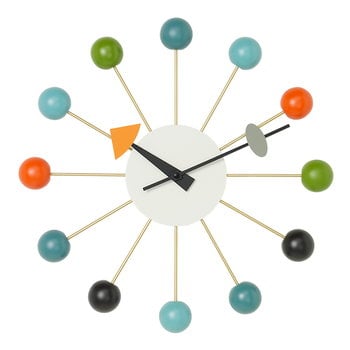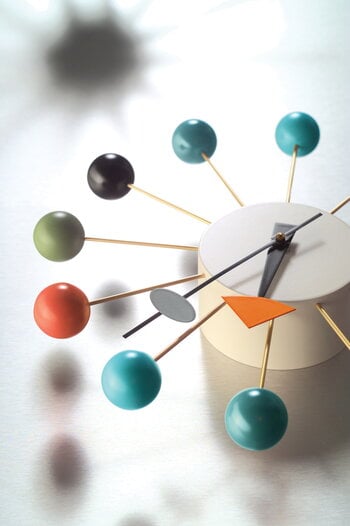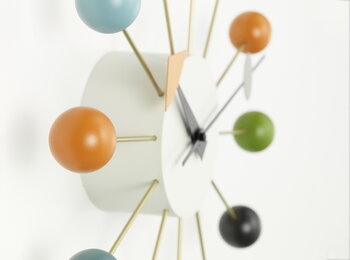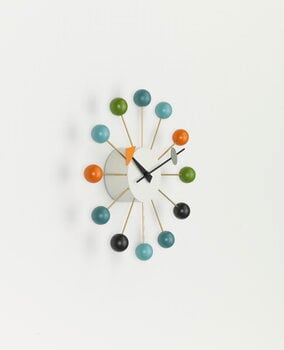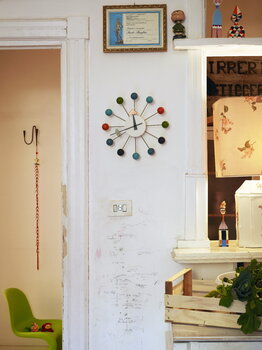Vitra’s Ball Clock from 1949 is a fun and iconic piece of art that will catch the eye in any room. The high-quality quartz movements and carefully designed details make the clock a reliable timepiece as well as a stunning decorative item.
Between the years 1948–1960, George Nelson’s office designed over 150 clocks for the American clock manufacturer Howard Miller. The collection consists of wall clocks and table clocks characterized by imaginative shapes, modern spirit and the absence of numbers. Nelson’s mission was to add more modern design to ordinary American homes, and he succeeded in a brilliant way – today the clocks are cherished as international design classics and masterpieces of mid-century American design.

